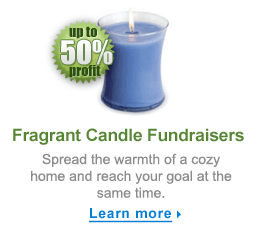 I am very happy to welcome back guest author Betsy Baker! Besty is the President of YourGrantAuthority.com. She has earned more than ten million dollars in grant funding and continues to be a grant writing consultant for nonprofits.
I am very happy to welcome back guest author Betsy Baker! Besty is the President of YourGrantAuthority.com. She has earned more than ten million dollars in grant funding and continues to be a grant writing consultant for nonprofits.
She is best known for her plain-language instructional guidance and offers both ebook instruction and one-on-one coaching in writing grants and starting a grant writing consulting career.
Betsy also runs a coaching program that teaches people on how to develop an exciting Grant Consulting career. This looks like a fantastic opportunity. Her current class is sold out, but click here to learn more about this class.
3 Tips for Award-Winning Grants
Listening to the coach, I couldn’t help but be reminded of one’s determination when it comes to writing grants that win. Think it’s effortless? Think again. Sometimes we’re a lot like our four and five year old friends. We think that we can piece something together and hit it out of the park on our first try. But a lot of planning and effort goes into each and every winning application. Plus, just like my son whose dad has spent many afternoons practicing with him in the backyard, you’ll find that the more that you write the better you become. I look back at some of my earlier proposals and wince – but I had to start somewhere. If you want to write proposals that win but haven’t had the best of luck, hang in there and follow this simple advice. You already know it, you just have to remember to put it into practice!
Submit a Polished Proposal – Don’t let application “eyesores” put your proposal on the chopping block. A professional, aesthetically pleasing proposal catches the grant reviewer’s eye. Be sure to leave plenty of white space in your narrative with at least one inch margins on all sides (unless otherwise instructed,) don’t doctor up your proposal with too many charts and graphs and spell check, spell check, spell check! Follow all application guidelines which means that you get your application in on time in the manner requested. (Ten copies included as suggested? Done. Delivered, as instructed in the guidelines, by U.S. mail at the specified time and date? Check. All requested documents attached? Yup. Resisted the urge to include your marketing materials such as your cool new video and annual report especially since it was expressly requested that you did not? Good for you!) You would be amazed at how many grant reviewers will chuck proposals that couldn’t even follow simple instructions.
Remember That You’re Always in a Competition – Dig for those statistics that prove you’re assisting folks that need your help. Employ an evaluation plan that proves you’re interested in the outcome of your clients. Prove that your organization is unique and provides services that no one else in the community is providing. Fight the good fight! Believe in what you’re doing and translate that into your proposal. Enthusiasm is contagious and a grant reviewer can tell when an organization is passionate about their work. Even when you’re up to your eyeballs in research and finding the whole stats thing becoming a blur of numbers and percentages, remember that while you know why your organization is needed and is helpful to the community, grant reviewers do not. It takes evidence and it’s your job to provide that. Your solid presentation of just the right facts and figures is persuasive in determining a positive outcome for your proposal. Going that extra mile, especially when others don’t, wins money.
Resist the Urge to Paint a Doomsday Picture – If your organization is on the verge of collapse if you don’t get this grant maker’s grant, you have much bigger problems than not getting this grant. You know that old saying “You attract more flies with honey than with vinegar?” Well, this same principle applies to how you represent your organization. Grant makers like winners – pure and simple. This means offering solutions to challenging situations and having back-up plans. While all nonprofits need money to survive, don’t put all of your eggs in one basket. (Loving the cliches today, aren’t I? I promise there’s a point.) The point is that while there’s nothing wrong with having a sense of urgency, what does turn off grant reviewers is painting so grim a picture that they alone hold the answer to your fate. Show that you’re simply incorporating them into your funding plan and list other means of raising funds that you feel positive about. This could mean that you’re applying to other foundations (you should be!) and implementing other fund raising methods such as major gifts, direct mail appeals, special events and annual giving programs.
I hope that you’ve found these tips helpful. Just keep practicing remembering all along that “practice makes perfect!” (Sorry, I had to throw one more in there!) For more juicy, winning grant writing tips, be sure to download a copy of my “60 Insider Grant Writing Secrets.”







